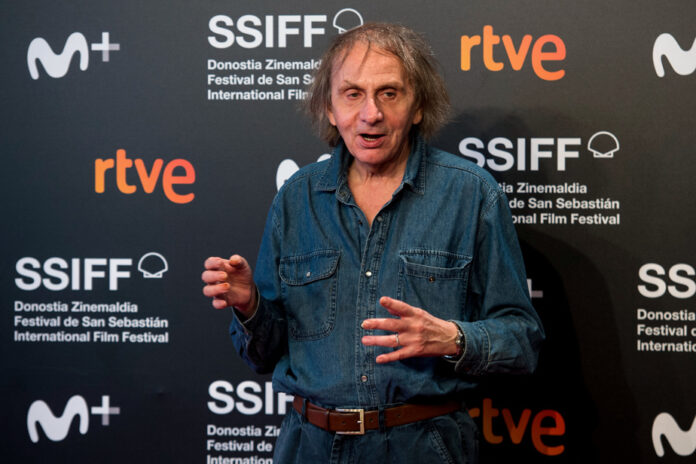(Paris) The French writer Michel Houellebecq oscillates between depression and contrition in his first autobiographical story, where he poses as the victim of a Dutch pornographic filmmaker… and of himself.
A few months in my life, October 2022-March 2023, which appears Wednesday at Flammarion editions, is a special text in the work of one of the most famous French-speaking authors in the world. Because, for once, this is not fiction.
One could speculate to what extent Michel Houellebecq’s youth was reflected in Elementary Particles or his marital happiness in Sérotonine.
Here, there is no ambiguity. The author spreads, in nearly 100 pages, six months which he describes as catastrophic for his reputation and his mental health. “I truly entered hell. I am still there today,” he wrote.
The French press received the book variously before its release.
Le Journal du dimanche saw it as a “lucid analysis”, while Le Figaro found the writer “intractable with himself and determined not to get carried away in dirty business operations”. These two titles have obtained interviews with the author, who rarely grants them.
More critical, Le Point detected “a sometimes Celinian register” where “the wound oozes on every page”, and L’Express is surprised by peremptory assertions, given “the number of scenes which are so many blanks in the memory of the author”.
The Obs in turn denounced a “whining, indecent” book.
Two cases punctuated these six months. First the Islamophobic remarks in the magazine Front populaire, then the unexpected episode of the pornographic film Kirac 27.
Michel Houellebecq says he is in both cases a victim, first of all, of his own stupidity or naivety, but also of the greed of those who exploit his notoriety.
The novelist admits to having damaged his image without earning a single penny.
“I had reached, personally, the near perfection of bullshit,” he notes of his inability to get paid for the very long interview with French philosopher Michel Onfray published in December. Since the issue sold well, “according to my agent, my shortfall was about 225,000 euros” ($328,000).
But worse, he reproaches himself for not having understood, by rereading the interview, that he was crossing the yellow line with his imprecations on the Muslims of France and violence.
“I apologize to any Muslims this text may have offended — that is, I’m afraid, pretty much all Muslims,” he says in his book.
Returning to his most virulent remarks, and wishing to have the issue of Popular Front in question withdrawn from sale, he did not succeed.
Just as he was unable to have the contract signed in December with filmmaker Stefan Ruitenbeek canceled in court. In the translation that Michel Houellebecq shows to readers, we discover that he agreed to act… for free.
Kirac 27, not yet released due to litigation in the Dutch courts, should be made of bits of filming in Paris and Amsterdam, under the watchful eye of a director nicknamed by the author “the Cockroach”, with actresses he refers to as “the Sow” and “the Turkey”.
On dozens of pages, the author, Prix Goncourt 2010, spreads insults against them.
Relatives assured him that the media would move on. “Pretty much everyone was wrong; this porn movie would never be forgotten,” laments the novelist.
“The idea that these images could be released against my will, I felt, for the first time, something that seemed to me to be similar to what women victims of rape describe,” he adds.
This comparison follows a passage where the writer, regularly accused of misogyny, explains that, while feminists hate him, he “don’t like them either”.















